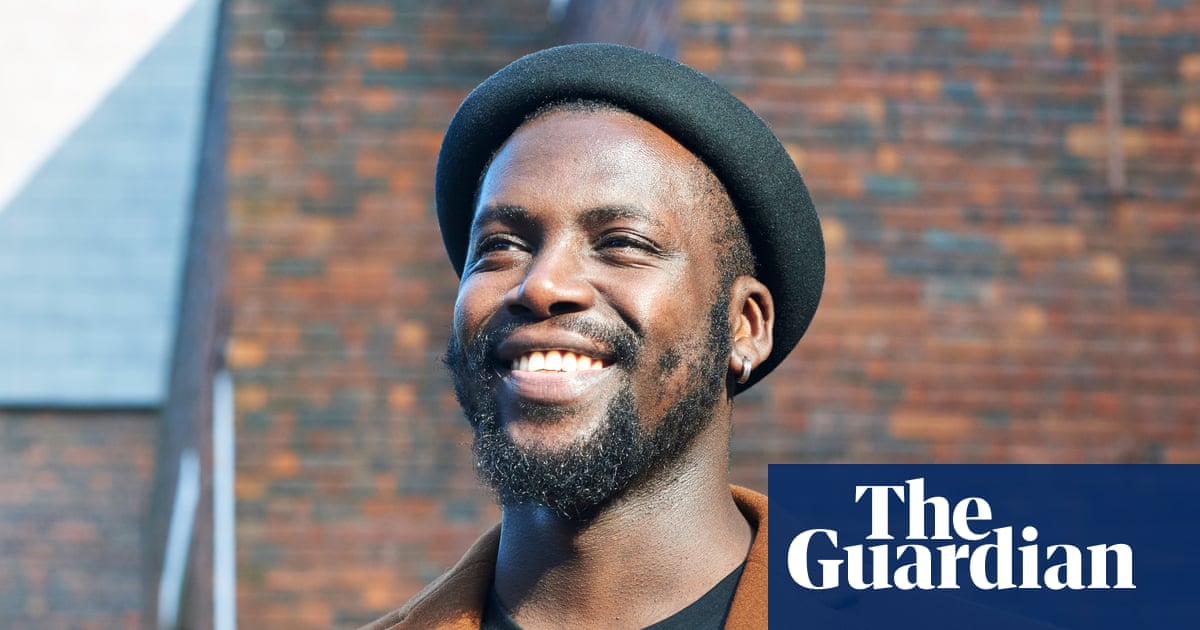“The best way to make sense of life,” Derek Owusu believes, “is to write about it.” His semi-autobiographical debut, That Reminds Me, was an attempt to understand how he came to be diagnosed with borderline personality disorder: a condition marked, among other things, by intense emotions, self-destructive impulses, fear of abandonment, black-and-white thinking, and an unstable sense of self. The novel, written in an elliptical and densely poetic style, offered an illuminating, if harrowing, account of alienation, addiction and self-harm, through the story of K, an alter ego whose early childhood, like Owusu’s, was spent in foster care. It won Owusu the Desmond Elliott prize in 2020, and announced him as an idiosyncratic talent; in 2023, he was named one of Granta’s Best of Young British Novelists.
Owusu now turns again to the subject of BPD, this time exploring the complexities and contradictions of living with the condition. His narrator, Marcus, is 25 when the book opens. An English literature student of Ghanaian heritage, he is at a speed dating event when he meets San. San is strikingly beautiful, and she grabs his attention right away: “So, yes, I was in love again, losing balance, stumbling towards an earlier phase of my life.”
The novel unfolds in alternating chapters titled “Twenty-Five” and “Nineteen”, shadowing Marcus at these two ages as he navigates fraught relationships – with women, with the parents who put him in care, and most crucially with himself. At 19 Marcus is a personal trainer, living between his parents’ home in Edmonton and his cousins’ in Tottenham, and dating Adwoa, a client of a fellow trainer. He does coke, hooks up plenty and often loses himself to the blur of club nights. His voice, rendered in Multicultural London English, has a raw, youthful swagger that is both charming and a touch troubling.
Meanwhile, 25-year-old Marcus is avoiding home; he fears that going back might diminish the drive he fought hard to find in order to finish his studies and one day become a writer. He is more self-aware, guarded and prone to metaphysical reveries, and the language is worked to reflect that. In both timelines, Marcus is locked to varying degrees in loops of overthinking and self-chastisement, though at 25 he is no longer doing drugs, and is on medication.
When Owusu was diagnosed with BPD in 2018, it immediately felt like something he had to share, he wrote in an essay for GQ. The diagnosis put a name on his off-kilterness, and its disclosure gave people the agency of whether or not they wanted to stay in his life. At 19 – and perhaps still at 25 – Marcus lacks this vital piece of self-knowledge (his condition is named in the title but not in the novel; it is also unclear if he is medicating for BPD specifically). He is frequently anxious, impulsive and emotionally volatile, especially in his relationship with Adwoa, where he swings between doting idealisation and sudden irritability. He tells Adwoa that he’s “a bit weird” without fully grasping what that means.
Owusu never offers any easy explanation for why Marcus is the way he is. Indeed, what we do learn comes in fragments, thwarting causal assumptions: a drug-induced breakdown in his mid-teens that led to hospitalisation; a heavy-drinking father; a mother who “comes and goes”; and a fixation on death. When Adwoa suggests he might benefit from therapy, he is puzzled: “What’s the point in going to therapy when I can just chat to you?” He insists that he isn’t ill, that he feels calm most of the time. But when Adwoa’s pregnancy forces him to reckon with the prospect of fatherhood, he can no longer pretend, and finally snaps.
Marcus, we are made to understand, does not want to become a father, because he thinks he will be no different from the kind of father his own father was. His fear is a reasonable one, but I found myself wishing Owusu had delved more deeply into the troubled father-son bond, and given us a keener sense of the wounds that separate them.
Marcus is a complex yet frustrating character: he is lavished with a sophisticated interiority but can at times feel less like a fully realised individual and more like a case study. His self-absorption, his acute emotional reactivity and his struggle, as a result, to be at peace with others and himself are rendered with such disturbing precision that they paradoxically risk flattening him into a symbol.
At its best, Owusu’s prose is disarmingly poignant. This is Marcus watching his father sleep: “And I knew then, I thought then, that once you get close enough to a thing you participate in its decay, watch it recede from time, slowly abandoning its flesh, slowly abandoning you, my dad, I thought, slowly abandoning me.”
after newsletter promotion
The most captivating, if somewhat underwritten, part of the story sees 25-year-old Marcus, in the final pages, working to step out of the prison of his mind. In Sylvia Plath’s The Bell Jar, Esther is told that the cure for self-absorption is to help somebody who is worse off than you. Marcus does not quite take that route, but he does begin to see a way out of himself through San, who introduces him to the idea of Pan-Africanism and the possibility of turning from the self towards the collective. Whether their relationship can mark a true turning point for Marcus is a question Owusu treats with exquisite skill and nuance. This isn’t a perfect book, but it is brave, eye-opening, unsettling, and not easily forgotten.
